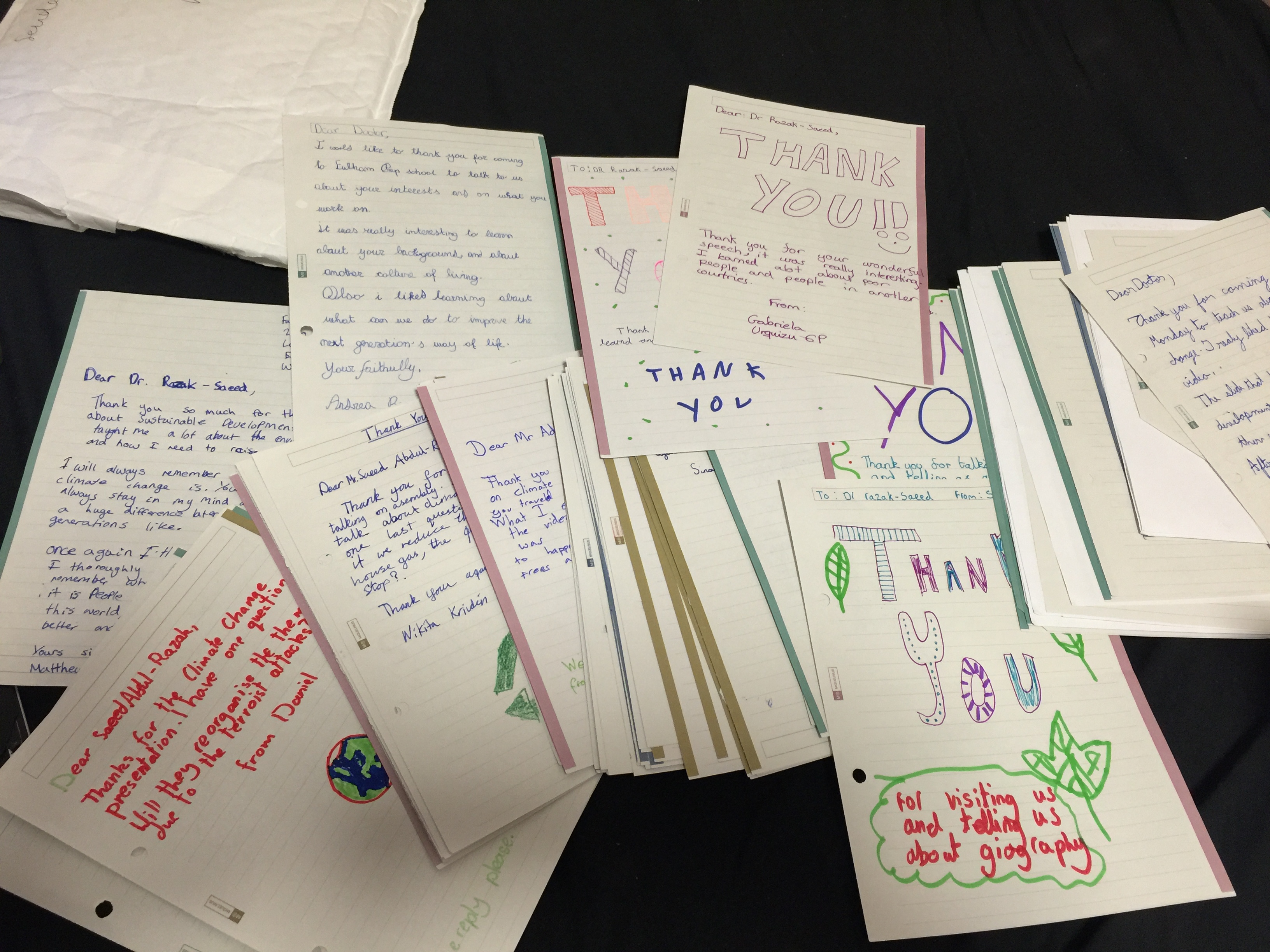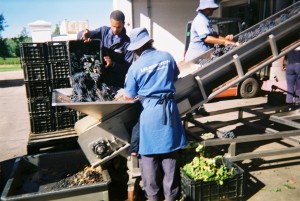In the latter part of November 2015, one of the SAGES doctoral researchers, Saeed Abdul-Razak, had the immense privilege to deliver a presentation to kids of the Fulham Preparatory School in London. The presentation was on the ethical dimensions of climate change and sustainable development with over 120 students in attendance. The talk employed interactive approaches including videos (e.g. https://www.youtube.com/watch?v=eRLJscAlk1M), pictures and questions to the audience.
The kids were introduced to the causes of climate change, development problems around the globe, the new 2015 -2030 sustainable development goals and the role of climate change in achieving these goals. There were case studies from Ghana on climate change mitigation (precisely REDD+) and climate change adaptation (for coastal communities) to explain the ethical implications of climate action.
The ethical dimensions aspect of the topic was treated in light of decision making and processes between developed and developing countries at the international level; elites/authorities and citizens at national level; and for the community level, it focused on the vulnerable such as women, children, the poor, etcetera. The presentation concluded on a positive note by encouraging the students to go green, to think globally but act locally as the earth’s resources are finite and human action/inaction are important factors that impact everyone.
In appreciation for the talk, the school’s current head boy, Harvey Glover, presented Saeed with a jug of fair trade chocolates. A couple of weeks after the talk, the kids wrote lovely letters appreciating the talk and Saeed’s time; some expressed their new inspiration to be green; others had follow-up questions and the remaining expressed how informative the presentation was and how they shared the new knowledge on sustainable actions with their parents, families and friends in order to ‘save the future’.



 Mozambique is highly vulnerable to natural disasters, in particular those of hydro-meteorological origin such as floods, drought and cyclones. Since 1970, Mozambique has been hit by 34 cyclones or tropical depressions and five major flood events, which have had dramatic social and economic consequences.
Mozambique is highly vulnerable to natural disasters, in particular those of hydro-meteorological origin such as floods, drought and cyclones. Since 1970, Mozambique has been hit by 34 cyclones or tropical depressions and five major flood events, which have had dramatic social and economic consequences.


